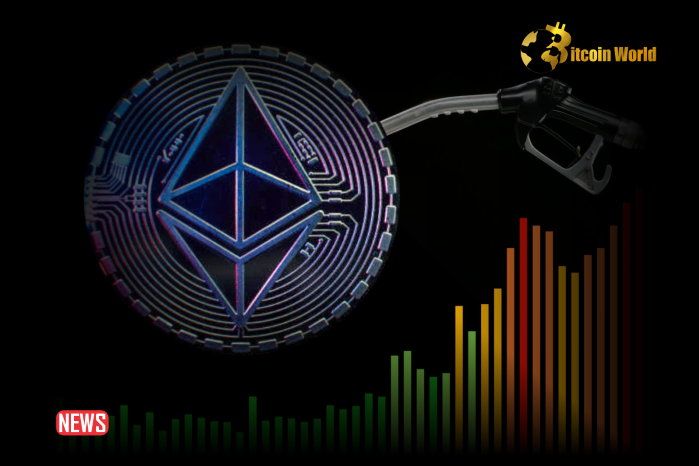Ethereum enthusiasts, brace yourselves! Gas fees, a notorious pain point, have plummeted to levels not seen in five years. What’s driving this dramatic shift, and what does it mean for the future of ETH? Let’s dive in!
Ethereum Gas Fees Hit Rock Bottom: A Deep Dive
Recent data indicates a significant drop in Ethereum gas fees, primarily attributed to two key factors:
- Increased Layer 2 Activity: Layer 2 solutions are processing more transactions off the main chain, reducing congestion and demand for gas.
- Dencun Upgrade: This upgrade has optimized data processing on the Ethereum mainnet, further lowering gas costs.
According to Kaiko, these factors have combined to push Ethereum gas fees to their lowest point in half a decade.
How Do Ethereum Gas Fees Affect ETH Supply?
The relationship between gas fees and ETH supply is crucial. Here’s the breakdown:
- Lower Gas Fees, Less ETH Burned: A portion of the gas fees is burned, effectively reducing the total ETH supply. When fees are low, less ETH is burned.
- Increasing ETH Supply: With less ETH being burned, the overall supply of ETH is increasing. This trend has been observed since April.
- Potential Price Impact: An increasing supply can counteract demand-driven price increases, even from factors like the potential listing of spot Ethereum ETFs.
Gas fees are paid in Ether (ETH) or Gwei, compensating validators for securing the network. These fees fluctuate based on network demand and capacity. High congestion leads to higher fees.
Whale Activity Declines Amidst Market Volatility
Interestingly, alongside the drop in gas fees, there’s also a noticeable decrease in Ethereum whale activity.
According to Santiment, transactions involving at least $100,000 worth of ETH have significantly decreased.
Kaiko’s report suggests that broader financial conditions, such as the Bank of Japan’s policy rate adjustments, have contributed to increased market volatility.
Disclaimer: The information provided is not trading advice, Bitcoinworld.co.in holds no liability for any investments made based on the information provided on this page. We strongly recommend independent research and/or consultation with a qualified professional before making any investment decisions.


